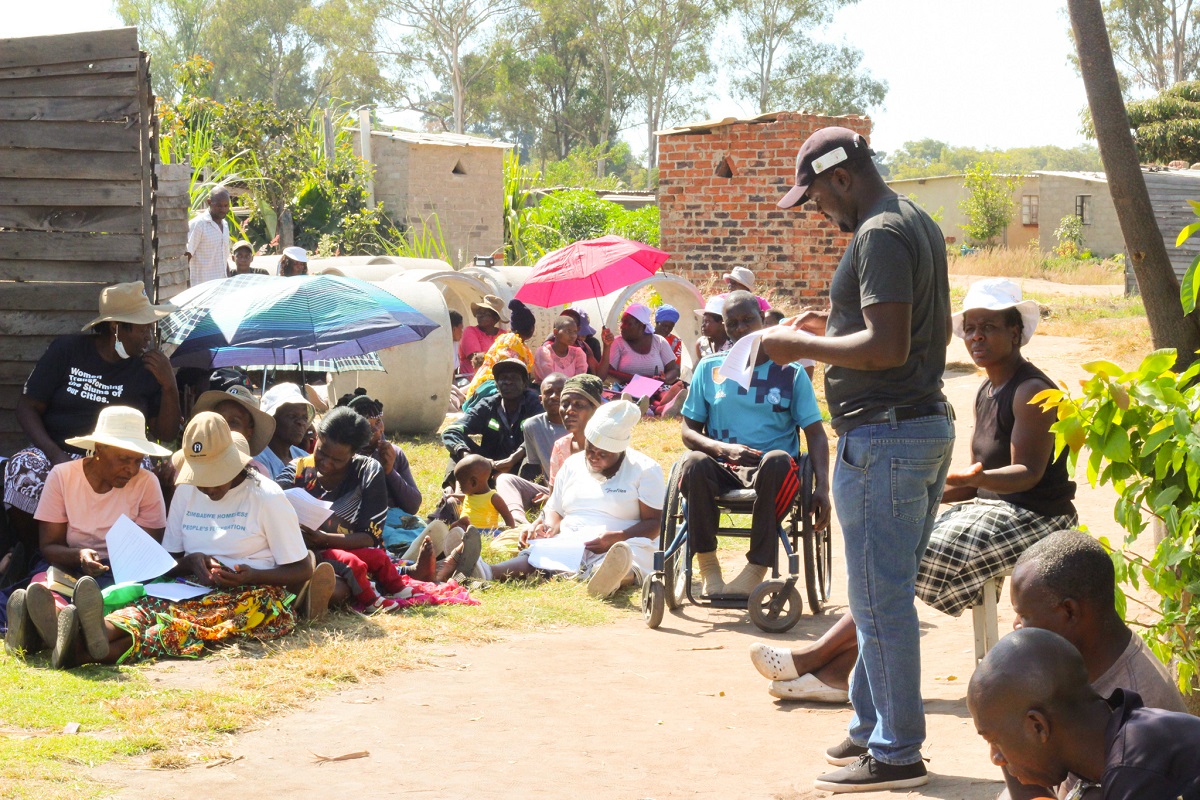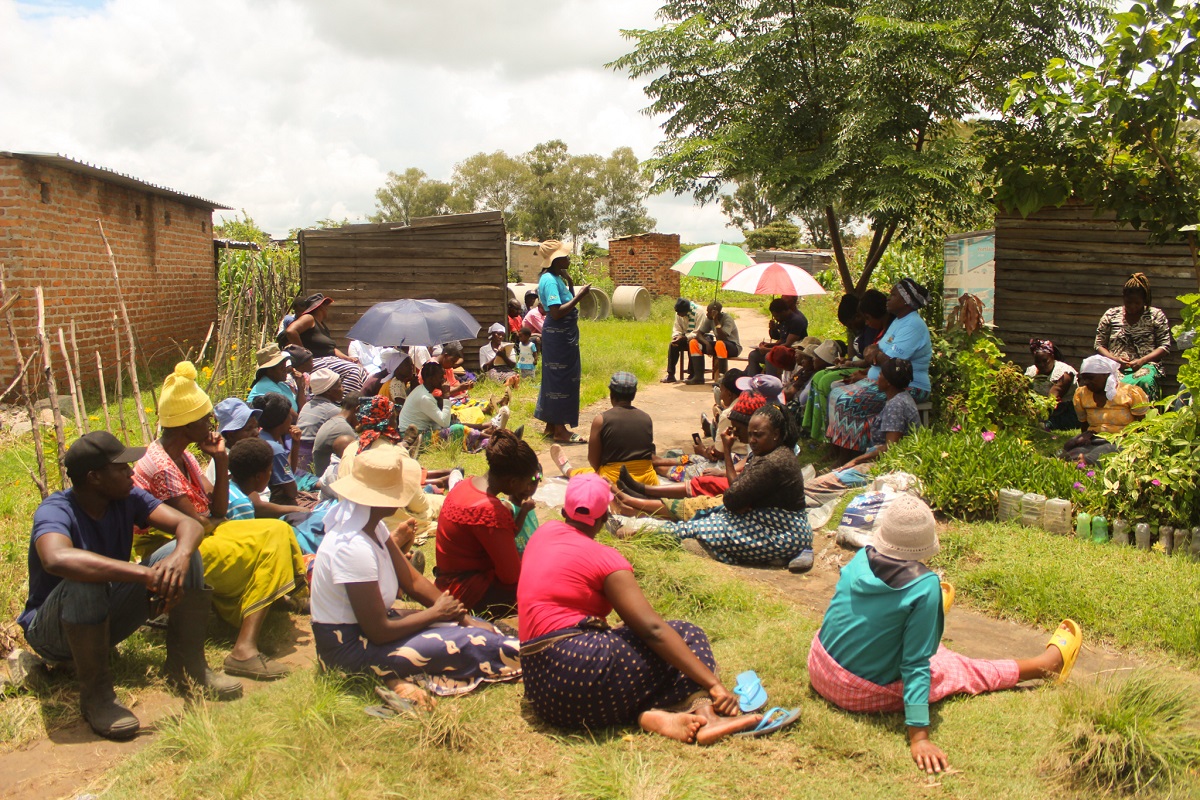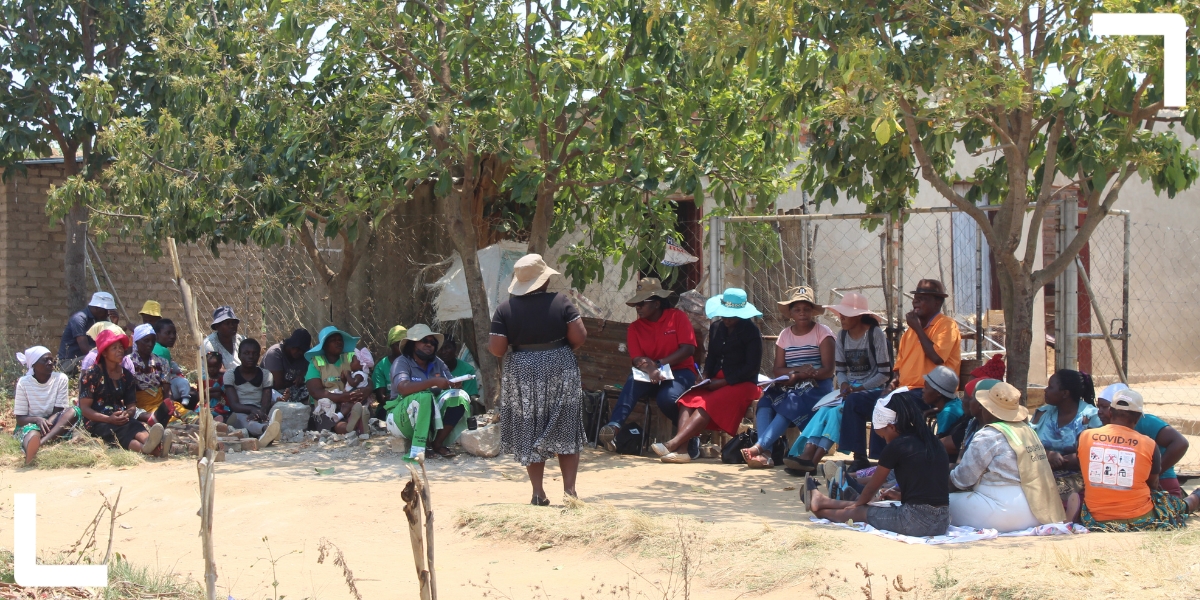Covid Collective
A multi-partner international group, the Covid Collective is working to provide evidence on the social dimensions of the pandemic to inform decisionmaking on Covid-19-related development challenges. Supported by the UK Foreign Commonwealth and Development Office (FCDO), the Covid Collective is based at the Institute of Development Studies (IDS).
As part of the Covid Collective, researchers within ACRC have been involved in projects looking at the impact of Covid-19 on communities and livelihoods in African cities.
The Covid-19 pandemic has highlighted and exacerbated inequalities in cities, with lasting impacts over time. Although governments, NGOs and the private sector delivered some relief, many low-income residents of informal settlements – who are typically excluded from key decisionmaking processes – were left to deal with the crisis themselves.
One such city is Harare, Zimbabwe, where informal settlements are deemed illegal. Residents already faced a lack of access to basic services and shelter, along with limited support from the government and local authorities. As a result, these communities are disproportionately affected by disasters, including the Covid-19 pandemic, requiring them to act as first responders.
As recent research by Dialogue on Shelter Trust and the Zimbabwe Homeless People’s Federation shows, community-led approaches are instrumental during times of crisis – particularly for people living in informal settlements. Under the Covid Collective programme, we studied community responses to the Covid-19 pandemic in three of Harare’s informal settlements: Stoneridge, Epworth and Hatcliffe.
As we seek to foster farsighted, inclusive strategies in the face of crises, it is crucial to emphasise the significance of collaboration and grassroots-led responses in building resilient communities (including in the face of health, economic or climate-related disasters).
Based on our research findings, we recommend four key actions for building resilient communities:
1. Foster partnerships for sustainable social protection solutions
To effectively respond to emergencies, it is essential for organisations – both governmental and non-governmental – to partner with grassroots organisations and community leaders.
Covid-19 was not only a public health issue – it also had severe socioeconomic consequences. Livelihoods for Harare’s informal settlement residents were often decimated, with many losing their incomes long past the early Covid-19 lockdowns. Based on our survey with 90 residents of Harare’s informal settlements (in late 2022), 65% said that their incomes had declined during the pandemic. Over half said that most or nearly all informal workers in their settlement were no longer working.
Future social protection programming should therefore focus on addressing structural issues that disadvantage low-income communities – including fostering access to essential services and supporting decent work – as well as providing emergency relief.
By working together on longer-term disaster preparedness and social protection programmes, we can harness the collective strengths and resources of multiple stakeholders to develop lasting solutions. Through such collaboration, we can also ensure that relief efforts are targeted, efficient and comprehensive.

Our research shows that community-led approaches are instrumental during times of crisis – particularly for people living in informal settlements.
2. Empower community leaders for effective decisionmaking
Community-wide structures – such as savings groups, informal settlement networks (ISNs) and residents’ associations – are invaluable platforms for inclusive decisionmaking and empowering community leaders, including to respond to crises.
We found that community savings groups were pivotal in low-income urban communities throughout the Covid-19 pandemic, with savings used as a financial cushion in the face of major income losses. A Federation savings scheme in Stoneridge explained that after their market stalls were demolished, they utilised savings to start a thriving poultry project: “This project has helped us as a group during and post Covid… We started with only 50 chicks, but now we have 200 chicks in different batches”.
Furthermore, by investing in strengthening the capacities of community leaders, we can enhance their ability to represent the interests of their respective communities more effectively.
3. Promote knowledge exchange and learning
A crucial part of building resilient communities is learning from the experiences of others. Knowledge exchanges between communities facing similar challenges can provide a platform for sharing best practices, lessons learned and innovative solutions, as well as establishing a network of support and collaboration.
Starting in 2018, Harare has had a valuable platform called the Urban Informality Forum (UIF), with regular meetings at the University of Zimbabwe between government and civil society participants, including Zimbabwe’s Homeless People’s Federation, Dialogue on Shelter Trust and government officials. It offers a multistakeholder reflection platform that uses urban informality as an entry point for future interventions.
Our Covid Collective research findings were used during a session to catalyse conversations on communities as first responders to disasters and health crises. In turn, the UIF has encouraged an inclusive, cross-cutting approach that can contribute to lasting solutions co-produced with both informal workers and residents of informal settlements.
By learning from one another, communities can adapt and implement successful strategies to address their unique circumstances, ultimately strengthening their resilience in the face of future crises.

Community-wide structures are invaluable platforms for inclusive decisionmaking and empowering community leaders to respond to crises.
4. Advocate for policy change and fair resource allocation
Community-led data collection has highlighted significant gaps in relief provision and beneficiary targeting. It is imperative that these findings are utilised to advocate for more inclusive policy changes and resource allocation that address the specific needs of disadvantaged communities.
Our research uncovered that pre-existing registers were used for social protection targeting, leading to some households receiving multiple types of support, while others who were equally in need were continually excluded. Co-producing evidence through participatory data collection can be used by both state and non-state organisations to better understand community needs and address gaps in relief provision.
By actively engaging with policymakers and relevant stakeholders, we can influence decisionmaking processes and ensure that the concerns and priorities of these communities are adequately represented.
Conclusion
By embracing collaboration, empowering community leaders, promoting knowledge exchange, and advocating for policy change, we can lay the foundation for more resilient communities.
As we navigate the challenges presented by the aftermath of the Covid-19 pandemic and prepare for future disasters, it is imperative that community-led approaches remain at the forefront of resilience-building and relief efforts. Together, we can build a more inclusive and proactive response system that truly reflects our communities’ needs and aspirations.
Photo credits: Know Your City TV Zimbabwe team. Community savings groups and focus group discussions in Harare.
Note: This article presents the views of the author featured and does not necessarily represent the views of the African Cities Research Consortium as a whole.
The African Cities blog is licensed under Creative Commons Attribution-NonCommercial-NoDerivatives 4.0 International (CC BY-NC-ND 4.0), which means you are welcome to repost this content as long as you provide full credit and a link to this original post.


